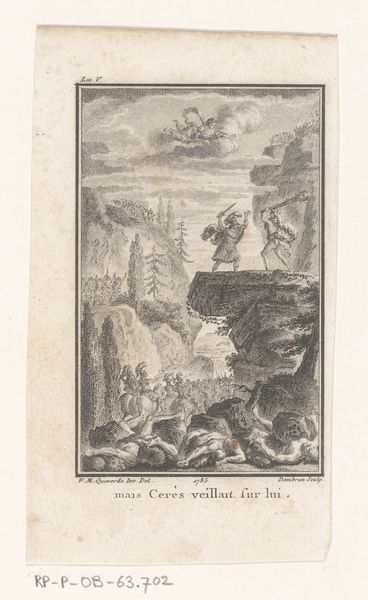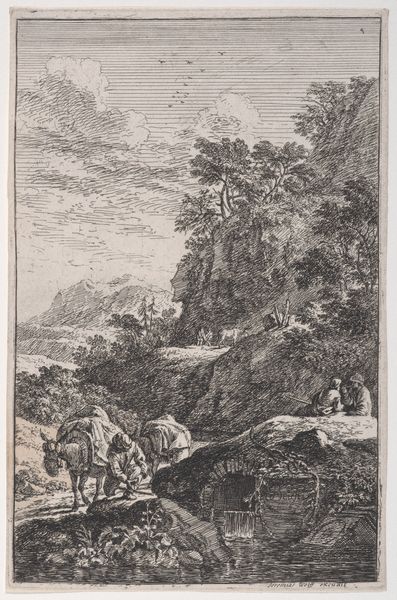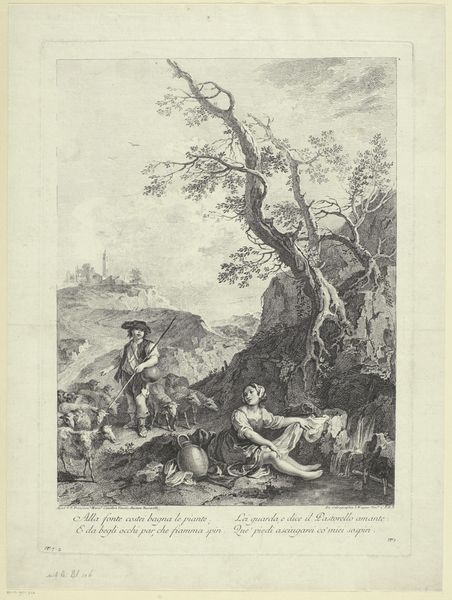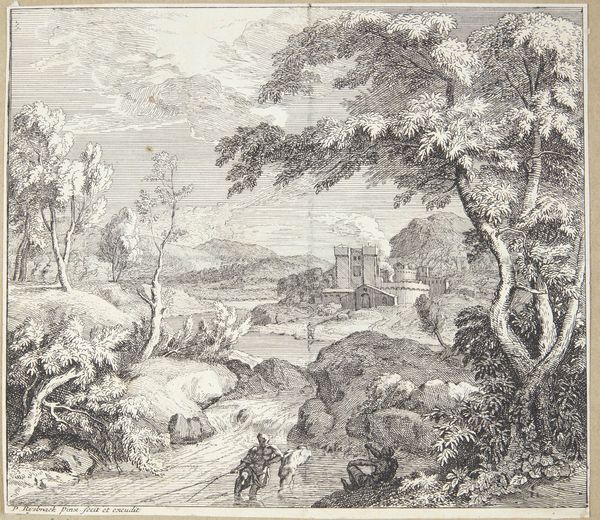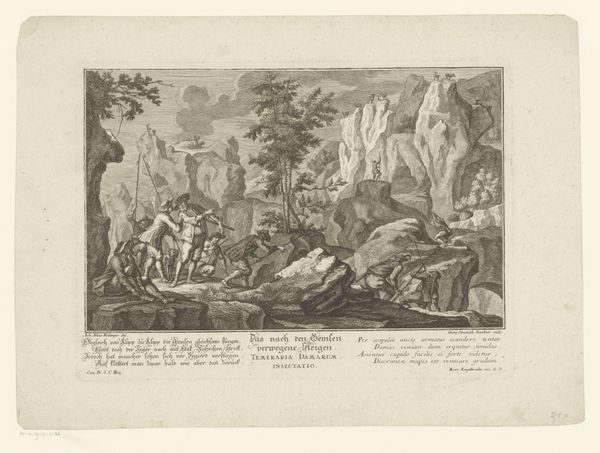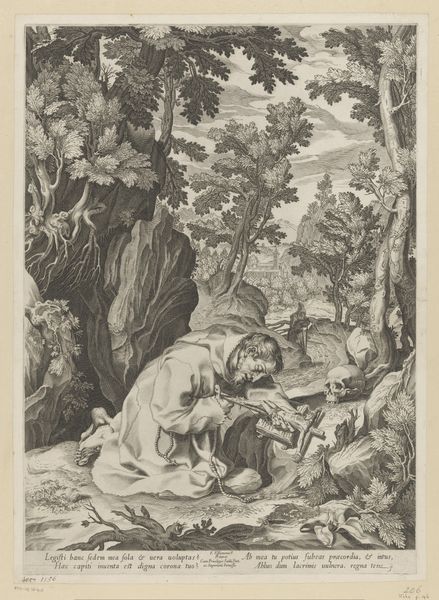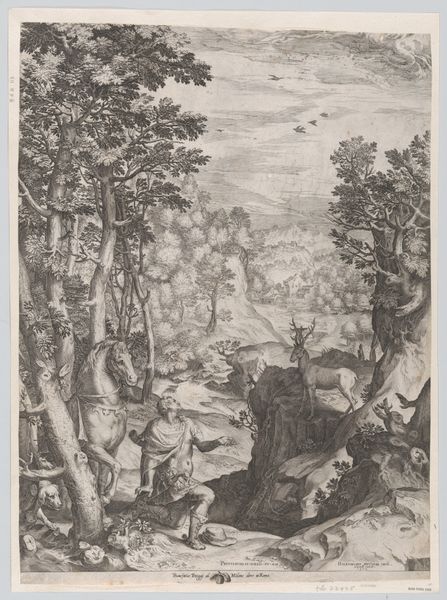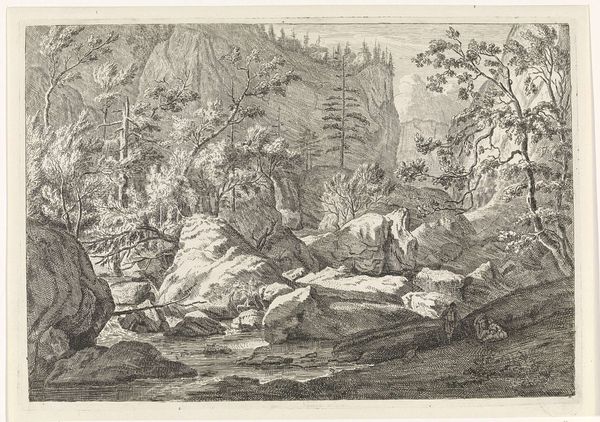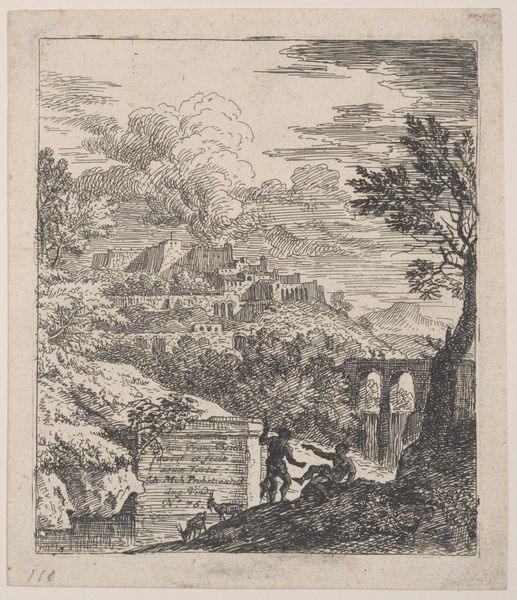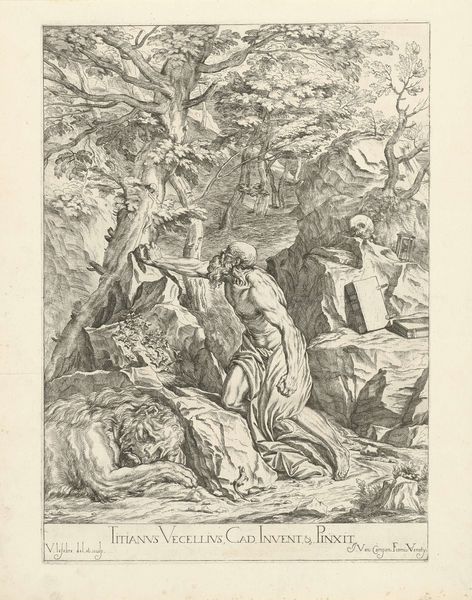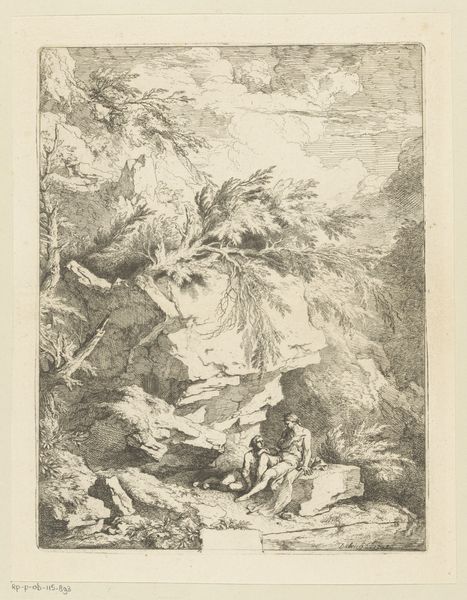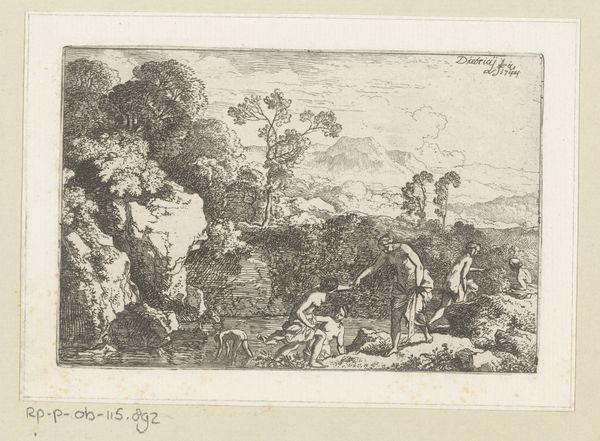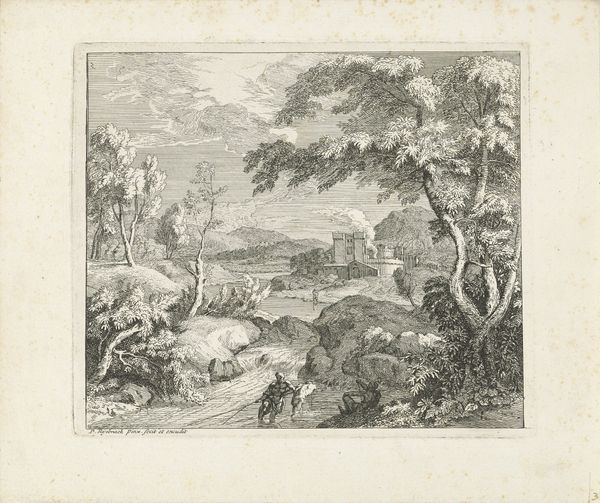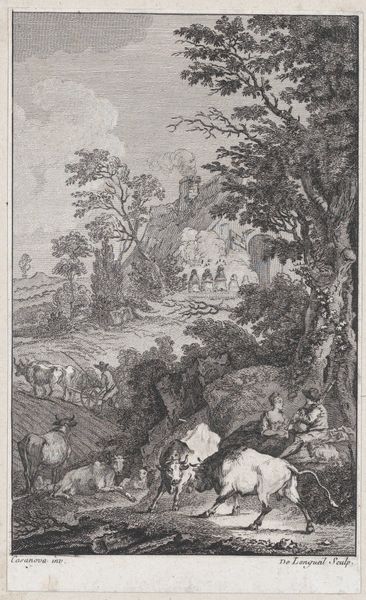
Plate 2: two figures sitting on a tree trunk on the bank of a stream in foreground, an aqueduct and tower in the background, from 'Landscapes in the manner of Gaspar Dughet' 1695 - 1730
0:00
0:00
drawing, print, etching
#
drawing
#
baroque
# print
#
etching
#
landscape
#
etching
Dimensions: Plate: 6 15/16 × 5 7/8 in. (17.7 × 15 cm) Sheet: 7 13/16 × 6 9/16 in. (19.8 × 16.7 cm)
Copyright: Public Domain
Franz Joachim Beich created this print, "Plate 2," using etching, a printmaking technique with a long and rich history. The process begins with a metal plate, usually copper or zinc, coated with a waxy, acid-resistant substance. The artist then draws through this coating with a sharp needle, exposing the metal underneath. When the plate is dipped in acid, the exposed lines are "bitten" or etched into the metal. The longer the plate is exposed to the acid, the deeper and darker the lines will be. Here, Beich shows skill in this process, using a series of fine lines, to create an idyllic scene. The figures, aqueduct, tower, and dense vegetation have emerged out of labor. Beich used the etching process to build up tone and texture in the landscape, inviting the viewer to study it closely. By understanding the labor-intensive process of etching, we can begin to appreciate the amount of work involved in its creation. The work stands as a testament to the enduring power of craft, and the skill of its makers.
Comments
No comments
Be the first to comment and join the conversation on the ultimate creative platform.
